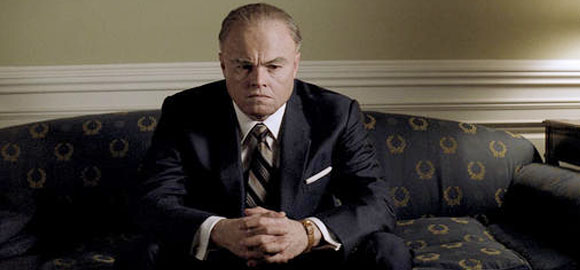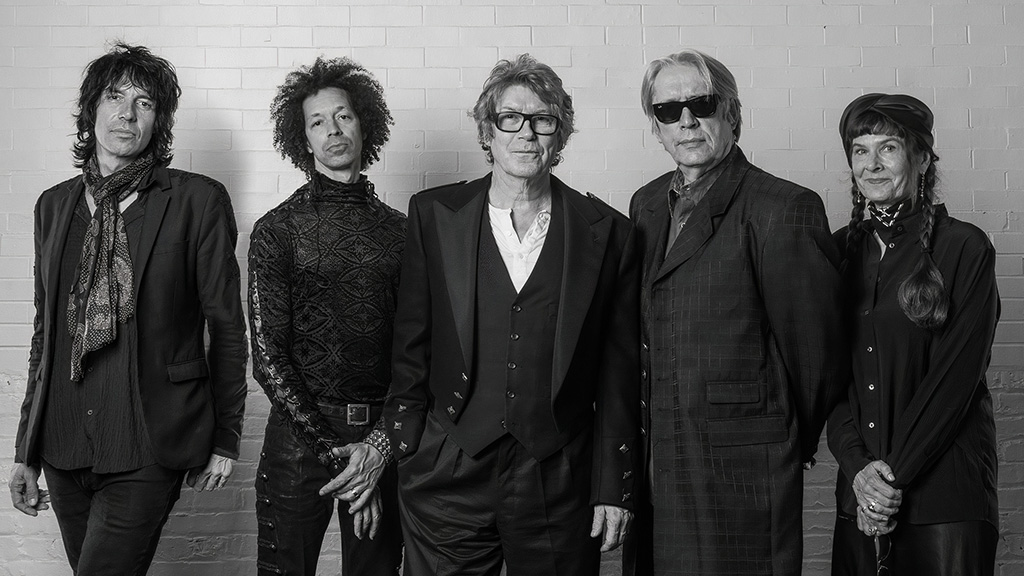Movie Review: J. Edgar
Oscar bait has a new name (at least this week). J. Edgar, Oscar-winner Clint Eastwood’s latest attempt to score one or more Oscars at next spring’s Academy Awards, arrives in theaters November 11th.
Another in a seemingly endless series of biopics, J. Edgar, suffers from every conceivable and avoidable problem, from an narrative to weak and uneven performances and listless, enervated pacing. In short, J. Edgar is exactly the kind of film Academy voters love to nominate and, more often than not, reward with golden statuettes at the film industry’s annual awards gala.
Relying on a flashback structure, Eastwood and his screenwriter, Dustin Lance Black, an Oscar winner for Milk three years ago, examine J. Edgar Hoover’s (Leonardo DiCaprio) life and times, shifting between Hoover’s wonder years as a can-do law enforcement official through his last years as the Federal Bureau of Investigation’s longest running director during the Nixon Administration.
Eastwood and Black occasionally dip into Hoover’s frequent abuses of power. Hoover kept personal files on politicians, including whatever president happened to be occupying the White House at the moment, their spouses and any public figure Hoover decided posed a potential threat to the generally conservative values and ideals he cherished.
Eastwood repeatedly returns to Hoover, sometimes young, sometimes old(er), visiting the Oval Office, personal files on said president under one arm, usually more powerful than when he entered. Eastwood shows Hoover clashing with Robert F. Kennedy (Jeffrey Donovan), John F. Kennedy’s younger brother and, during his brother’s presidency, the U.S. Attorney General, but relegates political skirmishes to brief vignettes or Hoover’s testimony in front of a congressional committee.
For psychological insight into Hoover’s personality, Eastwood and Black settle on three, overlapping “facts.” For Hoover’s staunchly anti-communist views, Eastwood and Black take us back to Hoover’s formative years and the 1919 Red Scare. Hoover, working for the then U.S. Attorney General, Mitchell Palmer (Geoff Pierson), orchestrates multiple raids on known and suspected subversives. Hoover proves instrumental in using immigration, specifically deportation hearings, to ban legal immigrants with communist leanings from the United States, including, most famously, Emma Goldman (Jessica Hecht). The Red Scare colors Hoover’s politics and the targets, all presumably subversive, Hoover pursues as the FBI’s director through the late 1960s (e.g., anti-war protesters, civil rights activists).
Eastwood and Black lean heavily on two more, presumably important facts: Hoover’s close relationship with his over-protective, doting mother, Annie (Judy Dench), and his repressed homosexuality. Add in the obvious disapproval of Hoover’s mother of even the hint of homosexuality and a decades-long relationship with Clyde Tolson (Armie Hammer), Hoover’s FBI deputy and Hoover’s rumored lifetime companion and lover.
Eastwood and Black accept the rumors as true, but refuse to take the Hoover-Tolson relationship a step further. It remains, as far as we can tell, unconsummated with the repressed Hoover channeling his sublimated desires into hunting subversives or expanding his personal files on real and potential political enemies.
That reductive simplicity to character and character motivation isn’t helped by the clumsy, awkward flashback structure. In the end, J. Edgar fails to make a convincing case for Hoover as the subject of a mid-budget, prestige film and not the subject of a late-night History Channel documentary.
Rating: 2.5 out of 5 stars.







